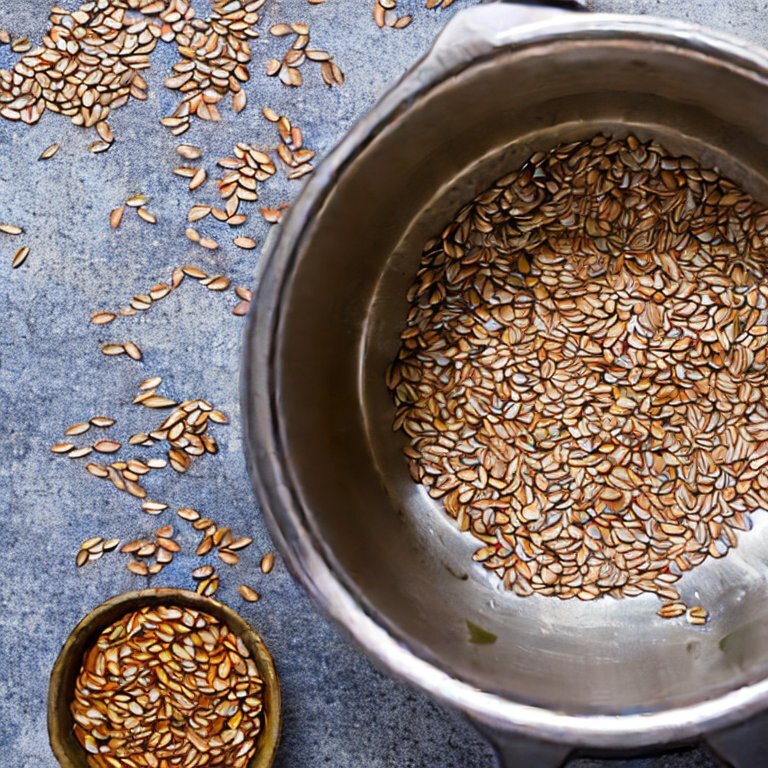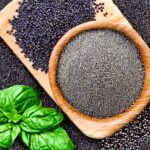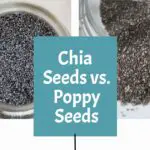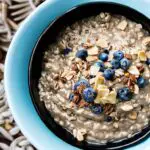
Flax seeds, the tiny yet mighty grains, have been a staple food in many cultures for centuries. These seeds boast an impressive nutrient profile, including fiber, protein, and essential omega-3 fatty acids. In recent years, they’ve gained a reputation as a superfood and are widely available in various forms, such as whole seeds, ground seeds, and oil. But one question that often arises is whether flax seeds can be boiled.
In this post, we’ll uncover the answer and delve into the pros and cons of boiling flax seeds.
Table of Contents
What are Flax Seeds?
First, let’s familiarize ourselves with what flax seeds are and how they’re typically used. These small, golden or brown-colored seeds come from the flax plant and are often used as dietary supplements or ingredients in various food items, such as bread, crackers, smoothies, yogurt, and oatmeal, to name a few.
Can You Boil Flax Seeds?
Regarding the boiling of flax seeds, the answer isn’t straightforward. Boiling is a cooking method that involves immersing food in boiling water or a hot liquid for a specified time. This cooking method is commonly used for cooking pasta, vegetables, and other foods, but not typically for flax seeds.
One of the benefits of boiling flax seeds is that it softens their hard outer shell, making them easier to digest and helping the body absorb the nutrients more effectively. Boiling also activates the beneficial compounds found in flax seeds, such as lignans, which have anti-cancer properties and promote heart health.
However, boiling isn’t the most efficient way to unlock the full nutritional value of flax seeds. Grinding the seeds, for example, is a more effective way to release their nutrients.
Does Boiling Flax Seeds Destroy Nutrients?
Additionally, boiling can cause some of the heat-sensitive nutrients, like omega-3 fatty acids, to degrade. The loss of nutrients is particularly pronounced when flax seeds are boiled for an extended time or at high temperatures. (Just as with chia seeds. See Can You Boil Chia Seeds?)
Another factor to consider is that flax seeds are delicate and boiling can damage their structure, leading to a loss of nutrients. Furthermore, boiling can cause flax seeds to become unappetizing and mushy, making them challenging to use in recipes. The release of oils from the seeds during boiling can also lead to a rancid taste, reducing their nutritional value and making them less appealing.
Should You Boil Flax Seeds?
Despite these drawbacks, there may be instances where boiling flax seeds is beneficial, such as when they are used in a recipe that requires boiling, such as a soup or stew. But, it’s essential to keep in mind that boiling flax seeds in this manner will result in some loss of nutrients and may affect their texture and taste.
To minimize these negative effects, it’s best to boil flax seeds for short periods at low to medium temperatures and not overcook them. Mixing the boiled flax seeds with other foods like yogurt, smoothies, or baked goods can counteract the gummy texture and improve their digestibility.
If you’re looking for an easy way to consume flax seeds, you might want to consider using ground flax seeds instead of whole seeds. Ground flax seeds are more easily absorbed by the body, have a gentler impact on digestion, and can be incorporated into a variety of dishes and drinks such as smoothies, oatmeal, and baked goods.
Another way to incorporate boiled flax seeds into your diet is by using them as a thickening agent in sauces, soups, and gravies. Boiling flax seeds can cause them to release their oils, which results in a thickening effect. This makes flax seeds a valuable ingredient in many recipes and a healthier alternative to traditional thickeners like cornstarch or flour.
Final Thoughts
In summary, boiling flax seeds is a cooking method that can increase digestibility and activate their beneficial compounds. But, it’s important to keep in mind the potential drawbacks, such as decreased nutritional value and an unappetizing texture. By boiling flax seeds in moderation, using techniques that minimize the loss of nutrients, you can still enjoy the many health benefits of these tiny but mighty seeds.
As a final note, grinding the flax seeds remains a preferred method of consumption, as it provides the most benefits with the least amount of drawbacks. Just like with chia seeds, grinding flax seeds allows you to enjoy the full range of their nutritional value.
Lance has been passionate about the plant-based diet and we have been following a whole food plant-based diet for over 5 years. We focus on health, natural healing, weight management, animal rights, and the health of the planet and environment by focusing on whole plant-based foods and sustainable practices.
Learn more at the About Me page and follow on social media at the links below.





